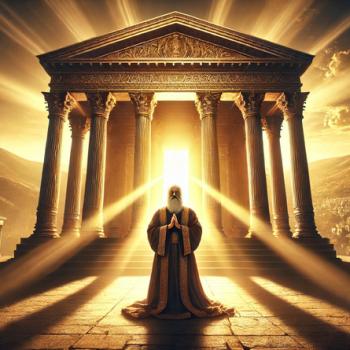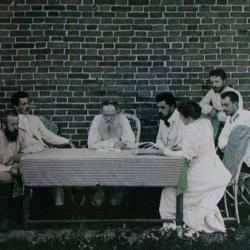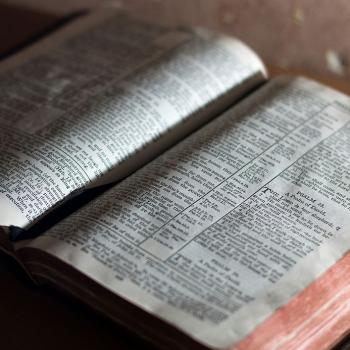"I came to William and Mary because as a Jewish person, I wanted to explore the rich tapestry of Judaica that is Southern Virginia," Jon Stewart joked as he accepted an honorary doctorate at the College of William and Mary's 2003 graduation ceremony, wearing a gray sweatshirt beneath his academic robe. "Imagine my surprise when I realized ‘The Tribe' was not what I thought it meant."
"The Tribe" refers to the school's athletic teams, and that Tribe indeed drew Stewart to this historic southern school, not an altogether obvious choice for a Jewish kid from New Jersey. In the 1980s, North-South tensions could still be felt on this conservative campus, which boasted traditions such as the Yule Log Ceremony, where the president dons a Santa outfit and reads How the Grinch Stole Christmas to the student body.
Stewart hoped to play professional soccer and joined the school team. "Jon was very feisty as a player, very high-energy sort of guy," says Al Albert, the coach at the time, who is also Jewish. "He played out wide. He worked very hard." After a stint on junior varsity his freshman year, Stewart moved up to varsity, playing midfield.
As in high school, Stewart was acknowledged as a funny man, although no one imagined that his future held a career in comedy. "He was always the locker room cut-up, but we've had other locker room cut-ups who haven't gone on to be comedians," Albert says.
Between traveling for matches and a rigorous academic load, there wasn't much time for soccer players to get into trouble. Beers at local delis, MTV, video games, and occasional concerts provided their primary entertainment. "Jon was very popular with girls and dated some very attractive women in college," recalls John Rasnic, Stewart's college roommate and soccer teammate.
Rasnic remembers at least one incident in which Stewart bumped up against anti-Semitism. During a game against Randolph-Macon College, a liberal arts school in Virginia, Stewart was called a kike. "Jon was a little upset, I think, perhaps a bit surprised, but he didn't let it bother him," Rasnic says.
In 1983, Albert recruited Stewart for the Pan American Maccabi Games in São Paulo, Brazil, a lead-up to the World Maccabiah Games, the Jewish version of the Olympics. Stewart started for the U.S. team and, as usual, established himself as the locker room joker. "He created a little bit of levity," says David Coonin, one of Stewart's Maccabi teammates, "but everybody was always a little afraid of messing with Jon because he was so quick-witted."
The ten-day trip included a Shabbat dinner, parties, Brazilian and Israeli dancing, and skeptical Latin American Jews. "When we walked out on the soccer field, they called us ‘gringos,'" says Fred Schoenfeld, co-chair of the Pan American Games that year. "They wanted to know if we knew how to play." The U.S. team proved itself by winning four games, losing only to Brazil in the finals. "After that, they no longer called us gringos."
On the surface, Stewart seems to have been well integrated into college life. But, as an adult, he would describe his William and Mary days as "miserable" and himself as "a lost person." Stewart pledged to a fraternity but dropped out, reportedly over objections to the hazing. Having started as a chemistry major, he switched to psychology after two years. "Apparently there's a right and wrong answer in chemistry; whereas in psychology, you can say whatever you want as long you write five pages," Stewart quipped to60 Minutesin 2001.
Another source of frustration was Reagan's election during Stewart's freshman year. "We always talked politics," says Mike Flood, who played soccer with Stewart. "Neither of us was a particularly strong Reagan fan."
Stewart scored ten goals for William and Mary, but his hopes for a pro soccer career were dashed by injuries. "Toward the end of his career, he blew out his knee," says his father. Still, Stewart's legacy on The Tribe soccer team lives on in the form of the Leibo award, given annually in recognition of good humor and hard work.
After graduating from William and Mary in 1984, Stewart returned to New Jersey and kicked around at a number of odd jobs. He worked as a bartender at Lawrenceville's Franklin Corner Tavern, sorted live mosquitoes for the New Jersey Department of Health, and was a puppeteer for special needs schoolchildren. In 1986, he sold his car and moved to New York to try stand-up comedy.
"When he finally decided to become a comedian, it was a little bit of a shock," Marian Leibowitz said in her Trenton Times interview. "But he was going to New York. He wasn't going to China. I decided I wasn't going to be the person to discourage him."
In 1987, the young comedian known as Jon Leibowitz scored a gig at the Bitter End in the West Village -- a comedy club where his idol, Woody Allen, had once performed. As he was being introduced, the emcee mangled the pronunciation of his name, prompting him to rename himself then and there, he told The New Yorker. But he also hinted at other reasons, such as "some leftover resentment at my family," presumably referring to his strained relationship with his father.




